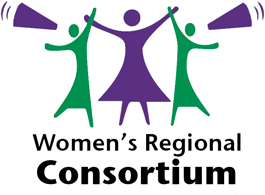The Women’s Regional Consortium has responded to the Department for Communities (DfC) Budget 2025–26 Equality Impact Assessment (EQIA), highlighting the disproportionate impact of budget cuts on women, particularly those in disadvantaged and rural areas.
Representing seven key women’s sector organisations across Northern Ireland, the Consortium’s submission underscores the urgent need for gender-sensitive budgeting and sustained investment in services that support women and families.
Key Concerns Raised
- Gendered Impact of Budget Cuts
The Consortium argues that the EQIA fails to adequately address the gendered consequences of proposed budget allocations. Women are more likely to be in low-paid, part-time work, bear the brunt of unpaid care responsibilities, and rely on social security benefits. Cuts to services and benefits risk deepening existing inequalities and pushing more women into poverty.
- Cost-of-Living Crisis
Research conducted by the Consortium and Ulster University in 2023 revealed that:
- 96% of women felt financially worse off than the previous year.
- 78% had experienced hunger or cold due to rising costs.
- 41% had used foodbanks or charitable support.
These findings paint a stark picture of the daily struggles faced by women, many of whom are forced to sacrifice their own wellbeing to protect their children.
- Welfare Reform and Mitigations
The Consortium calls for the strengthening of welfare mitigations, including:
- Addressing the five-week wait for Universal Credit.
- Mitigating the two-child limit.
- Supporting private renters affected by Local Housing Allowance restrictions.
These measures are seen as essential to prevent further financial hardship and to support economic recovery.
Call for Gender Budgeting
The Consortium endorses the Women’s Budget Group’s call for gender budgeting, which involves analysing the impact of budget decisions on different genders and designing policies that promote equality. They argue that gender-neutral approaches have historically failed women and that targeted investment is needed to address systemic disadvantages.
Support for Community-Based Services
Women’s Centres and community organisations play a vital role in delivering wraparound services, including childcare, education, and mental health support. The Consortium stresses the importance of:
- Sustained funding for the Women’s Centres Childcare Fund (WCCF).
- Investment in community-based education and training.
- Long-term support for the Voluntary and Community Sector.
These services are lifelines for women in disadvantaged areas and are crucial for promoting social inclusion and economic independence.
Recommendations for Future Planning
Looking ahead, the Consortium urges the Department to:
- Use disaggregated data to inform policy decisions.
- Recognise the cumulative and intersectional impacts of budget cuts.
- Prioritise investment in social security, childcare, housing, and employment support.
- Avoid revenue-raising measures that disproportionately affect low-income households.
They advocate for an “Invest to Save” approach, arguing that supporting women and families now will yield long-term economic and social benefits.
As one participant poignantly stated: “We’re not living, we’re just existing.” The Consortium urges the Department for Communities to take meaningful steps to change that.

